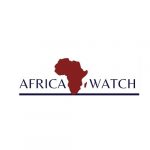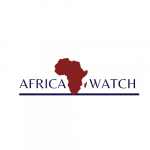According to a recent report from the Associated Press, South African President Cyril Ramaphosa has ordered a judicial inquiry into claims that successive post-apartheid governments obstructed the prosecution of apartheid-era crimes, responding to mounting pressure from victims’ families and civil society groups.
The announcement follows a lawsuit by relatives of victims, including the families of the Cradock Four, four anti-apartheid activists murdered by state security forces in 1985, who accuse the state of ignoring key recommendations made by the Truth and Reconciliation Commission (TRC).
A History of Suppressed Justice
The TRC was formed in the 1990s as South Africa transitioned from apartheid to democracy. Its mission was to uncover the truth behind decades of racial violence and repression, offering amnesty in exchange for full disclosure of political crimes. But where perpetrators failed to apply for amnesty or had their applications denied, the TRC recommended prosecutions.
Those prosecutions largely never happened. For years, families of apartheid victims have claimed that state institutions — particularly the National Prosecuting Authority (NPA) — were pressured not to pursue cases, in what many describe as a silent pact to avoid reopening wounds.
The Cradock Four: A Flashpoint for Accountability
The Cradock Four — Matthew Goniwe, Fort Calata, Sparrow Mkhonto, and Sicelo Mhlauli — were kidnapped and killed by apartheid-era security forces in 1985. Their case has become emblematic of the broader failure to hold perpetrators accountable.
Their families allege that successive democratic governments, including those led by the African National Congress (ANC), actively interfered to prevent prosecutions. The legal action they initiated brought renewed attention to the state’s inertia and prompted calls for a formal investigation.
Inquiry to Probe Political Interference
Ramaphosa’s inquiry will examine whether political interference prevented apartheid-era cases from moving forward. It will also scrutinize the role of the NPA and senior officials in shelving investigations or discouraging prosecutors from acting.
According to a statement from the Presidency, the inquiry will recommend structural reforms, and where appropriate, identify individuals or institutions that obstructed justice.
Implications for Justice in the Context of the African Charter
The inquiry has implications for South Africa’s obligations under the African Charter on Human and Peoples’ Rights.
-
Article 7 (Right to a fair trial): Victims and their families have long been denied access to justice.
-
Article 5 (Protection from torture and dignity): The apartheid regime’s systematic abuses have not been adequately redressed.
-
Article 21 (Peoples’ right to resources): Economic crimes tied to apartheid policies remain largely unprosecuted.
South Africa, as a signatory, is obligated to uphold victims’ rights to justice, truth, and reparation.
Will Justice Finally Be Served?
Ramaphosa’s move marks a significant shift in acknowledging the state’s role in suppressing apartheid accountability. But whether this inquiry leads to real prosecutions or simply adds another chapter to a long saga of delays remains to be seen.

